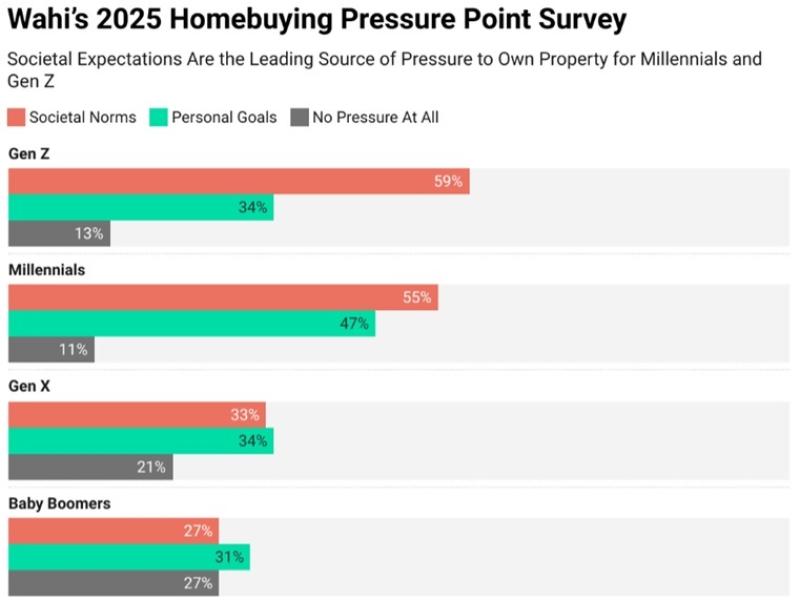
ReMax Canada forecasts buyer’s markets in Ontario and British Columbia this fall with lower prices in many major cities. Atlantic Canada and the Prairies are to shift to a seller’s market, the national realtor says in its 2025 Fall Housing Market Update.
ReMax reports listings have increased in Ontario and British Columbia through 2025, while signs of a tighter market emerged in the Prairies and Atlantic Canada.
The average national price of a home is projected to decrease by 6.5 per cent in the fall, with home sales expected to drop five per cent by the end of the year.
ReMax observed year-over-year sales declines in 62 per cent of the housing markets it analyzed between Jan. 1 to July 31. Two thirds of the markets in Ontario and British Columbia saw prices decline year-over-year; conversely, prices rose in every market in Atlantic Canada and the Prairies.
“It's going to put some pressure on where the inventories are. Wherever there’s activity, there tends to be an influence on the prices,” Don Kottick, president of ReMax Canada, said an interview with RENX Homes.
ReMax's market forecast
By the year’s end, Ontario markets expected to see lower prices are Toronto and Windsor (four per cent), Kitchener-Waterloo and Durham (five per cent), North Bay and Brampton (two per cent), and Kingston (one per cent).
Price increases are forecast in Sudbury (five per cent), Hamilton-Burlington and Simcoe County (four per cent), Mississauga and Niagara (two per cent), Ottawa (1.5 per cent), York Region (1.3 per cent) and London (one per cent).
Under this projection, York Region would lead Ontario in average home prices (for all housing types) at $1.26 million, followed by Toronto and Mississauga at a little over $1 million.
ReMax projects home prices in the Greater Vancouver Area and Fraser Valley to fall by 15 and two per cent, respectively, to $2.1 million and $1.2 million. In the Central Okanagan, it expects prices to rise by 3.3 per cent to $1.15 million.
The largest markets in the Prairies – Calgary, Edmonton, Regina, Saskatoon and Winnipeg – are predicted to be a mixed bag of buyer’s, seller’s and balanced markets.
Edmonton is expected to see prices increase by six per cent over the fall to $488,029. In Calgary, prices are forecast to dip by three per cent to $614,557. Markets in Regina, Saskatoon and Winnipeg are projected to see prices modestly tick up 1.5, three and four per cent, respectively, to $351,901, $369,962 and $490,811.
The major markets in Atlantic Canada are on track to be either seller’s or balanced markets. Prices in all the cities are projected to increase, with the St. John’s Metro area leading with a 10 per cent rise to $424,395.
Canadians cautiously optimistic about economy, housing in the fall
After a tumultuous spring and summer for the Canadian economy, buffeted by a trade war and a federal election, ReMax is finding evidence some Canadians see the economy stabilizing in the near future.
According to an online Leger survey of 1,533 Canadians commissioned by ReMax that was held between July 25 to 27, 46 per cent of respondents anticipate the economy will hold steady over the next six months. Over half (54 per cent) responded they believe this fall will be a “good time to strike a deal on” a home.
More Canadians “have just become comfortable with the uncertainty that the Canadian government hasn't been able to solve the tariff problem for us,” Kottick said.
Among the eight per cent of respondents who plan to sell their homes during the coming year, 63 per cent expect they can sell at their asking price. ReMax suggests it is a sign sellers may already be aligning their expectations with what buyers are willing to pay.
Of the 12 per cent of Canadians ready to buy a home next year, many are awaiting for prices to drop or for interest rates to further taper. Under seven in 10 (68 per cent) say a five- to 10-per-cent drop in property prices would meaningfully impact their decision to enter the market, while 64 per cent would feel ready if interest rates fell by 0.5 to one per cent.
ReMax found new Canadians and retirees are driving sales in most markets, as opposed to first-time buyers. The first-timers are also older, with more making their first home purchase in their late 20s to 40s.
“I think that goes back to being an affordability issue,” Kottick said.










